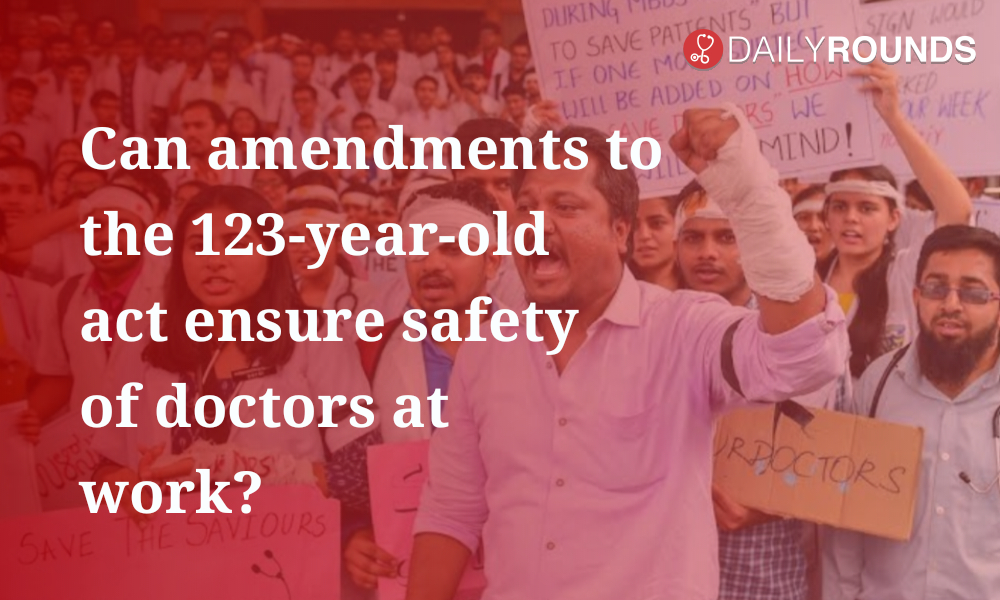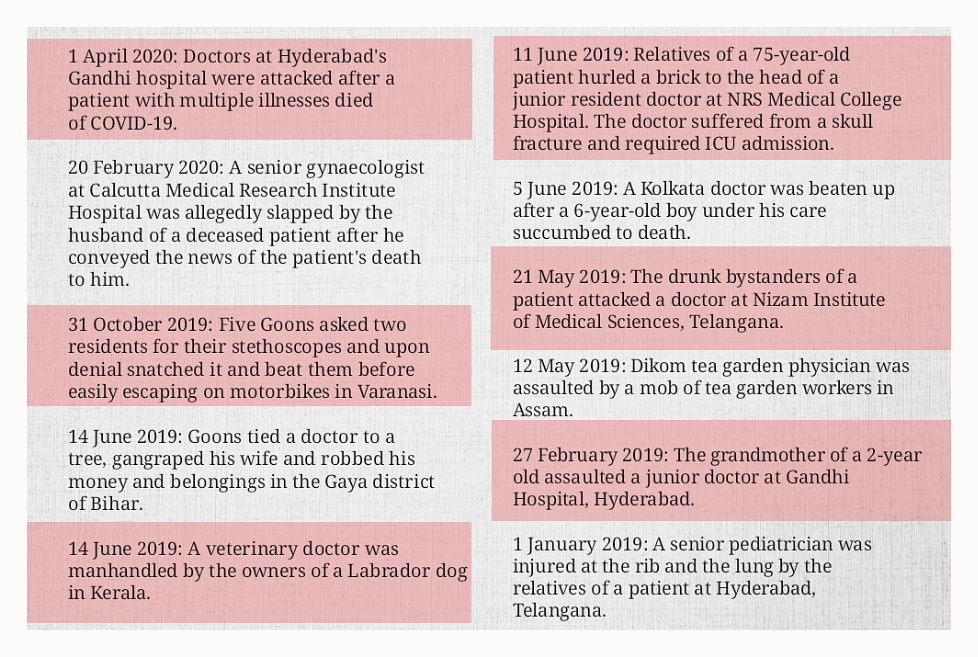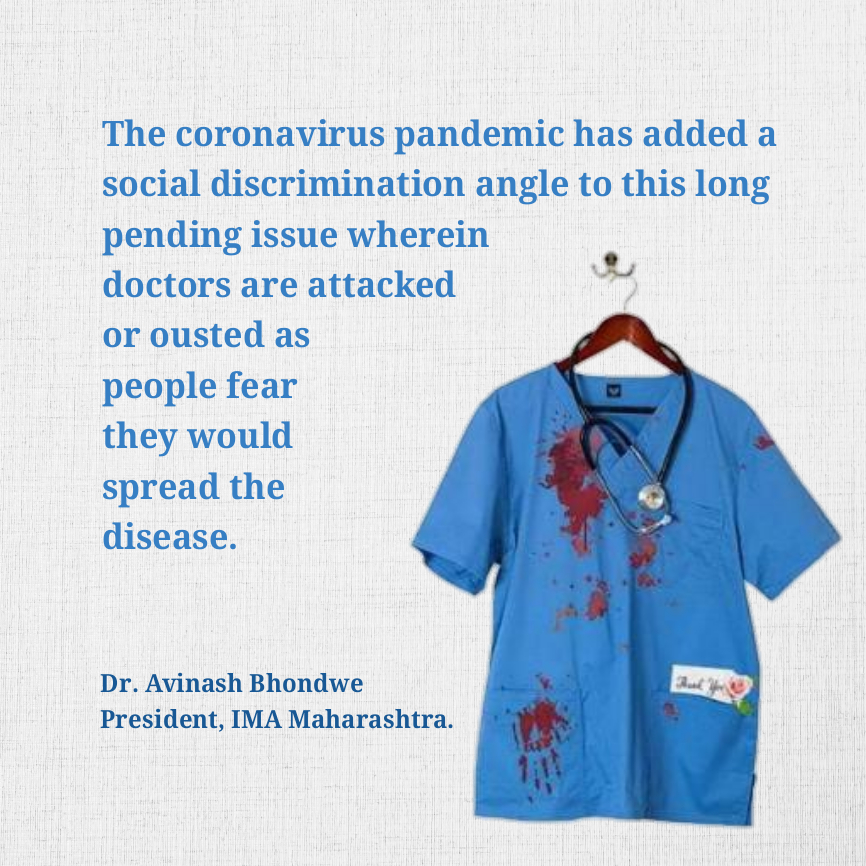
Can amendments to the 123-year-old act ensure safety of doctors at work?
The newly amended Epidemic Disease Ordinance -2020 has brought in a sigh of relief among the doctors and healthcare workers across the country, but is it a permanent solution to curb the stray acts of violence against the frontline healthcare personnel?
Even though the ordinance provides welcome relief amid the attacks, the amendments to the 123-year-old act cannot be portrayed as a savior of healthcare professionals in the long run.
According to the Ministry of Health and Family Welfare, the ordinance provides for making such acts of violence cognizable and non-bailable offenses and for compensation for injury to healthcare service personnel (HSP) or for causing loss/damage to the property in which HSP may have a direct interest in relation to the epidemic.
The punishments for such attacks will be 3 months- 5 years of imprisonment and a fine of Rs 50,000 – 2,00,000. In cases where there are grievous injuries the punishment will extend up to 6 months – 7 years and fine up to Rs 1 lakh – 5 lakh.
However, The ordinance which came into effect after the approval of President Ram Nath Kovind is merely an ‘Epidemic Ordinance’. It can safeguard doctors and healthcare workers only during the time of an epidemic. Thus, it can only be considered as a temporary solution to the deep-rooted problem of assaults on healthcare professionals, which has been happening all across the country from time to time.
Unfortunately, India has been home to several attacks on healthcare professionals even in the past. As per the IMA reports, back in 2015, more than 75% of doctors in India have faced violence at some point of time in their life. The brutal assault on a junior doctor in Kolkata’s NRS Medical College Hospital in June 2019 had given rise to widespread protests throughout the country. However, no steps were taken by the government to cease such repeatedly occurring mishaps.

Such a situation prevailing in India has become a serious matter of concern in the present global scenario, especially when the International Labour Organization observes today as the ‘World Day for Safety and Health at Work’, emphasizing the need for a safer and healthy working atmosphere.
“Over 1,000 doctors are attacked every month in India, physically or verbally or by other means mostly when the patient dies. The coronavirus pandemic has added a social discrimination angle to this long pending issue wherein doctors are attacked or ousted as people fear they would spread the disease,” said Dr. Avinash Bhondwe, President – Indian Medical Association-Maharashtra. “We hope that the first-ever Central law brought in this regard would act as a deterrent.” He further added.

The proposed draft bill titled ‘The Healthcare Service Personnel and Clinical Establishment‘ (Prohibition of violence and damage to property) Bill of 2019 was a solid solution to this condition, sadly the bill is still pending before the parliament in red tapes.
The bill, unlike the recently promulgated Epidemic Disease (Amendment) Ordinance, which comes into effect only during an epidemic, includes provisions regarding violence against healthcare service professionals and damage to the property of clinical establishments across the country irrespective of the circumstances.
To boost the morale of the warriors in white coats to serve the nation even during such unprecedented circumstances, such temporary amendments should pave the way for concrete laws that ensure total safety for the frontline healthcare workers in our country.
Even though the recent amendment may act as an antidote to the poisonous acts against the medical community during the pandemic, what we need is an effective vaccine in the form of a statute, having a long term power to curb the violence against healthcare workers all across the nation.